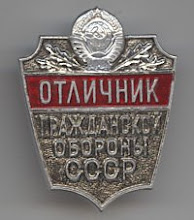"Starting in 1967, I was, for a few years -- my records are imprecise on this point -- a consultant for RAND (although it did not consult me often) and became personally acquainted with Albert Wohlstetter. In 1967, he and I attended a meeting in New Delhi of the Institute of Strategic Studies to help promote the Nuclear Non-Proliferation Treaty (NPT), which was being opened for signature in 1968, and would be in force from 1970. There, Wohlstetter gave a display of his well-known arrogance by announcing to the delegates that he did not believe India, as a civilization, "deserved an atom bomb." As I looked at the smoldering faces of Indian scientists and strategists around the room, I knew right then and there that India would join the nuclear club, which it did in 1974."
I'll have to read Abella's book. I'm not so sure quite what I think of Johnson's portrayal of RAND, especially as (at least in the field of nuclear strategy) there was very considerable disagreement among their specialists. By the mid-1960s, Brodie, Kahn, and Schelling were all making very different arguments, with varying strengths and weaknesses, all of which were different from what they had been saying a few years earlier. It's hard to demonstrate a straight path between their inconsistent ideas about nuclear strategy and later policy, except that their language was and is used to describe strategic concepts. At the same time, Johnson is right that RAND wasn't very good at understanding the Soviet Union, or indeed anything that wasn't a machine or a game theory model. I have mixed feelings about RAND; on the one hand I believe that they were instrumental in making the world safer by getting the military to replace some incredibly bad policies with considerably better ones, but on the other their influence in third world policy was, as Johnson notes, not very positive. In any case RAND is certainly a fascinating mileau for a historian.

3 comments:
The one negative Amazon review of the book is interesting
Well, it's not like I was going to pay for the book--I'm waiting for the university library to buy it. I'm not expecting great history, I'm just interested to see a "popular" rendition of RAND's history.
At the same time, perhaps we can take the Amazon review with a grain of salt--the authors doesn't state what has so offended him. Chalmers Johnson wasn't charitable either; it's just that in his review Johnson expresses a very different understanding of RAND than my own. As a historian of the Soviet Union, I have a very different outlook on these things than most; the Soviets didn't have a civilian institution like RAND to critique their defense policy. As such, I see RAND as one of the major features distinguishing the defense cultures of the two superpowers, and a probable reason why Soviet strategic concepts differed so much from our own.
I was quite disappointed by the book. It wasn't really about RAND's research or its studies, was it? It was mainly about the post-RAND careers of people who worked at RAND many decades in the past (Wohlstetter, Marshall, Arrow and such) or people who knew those people but were not connected to RAND at all (like Chalabi). I still would like to read a history of RAND that covers the studies it has done. Alas, this book didn't attempt that.
Post a Comment